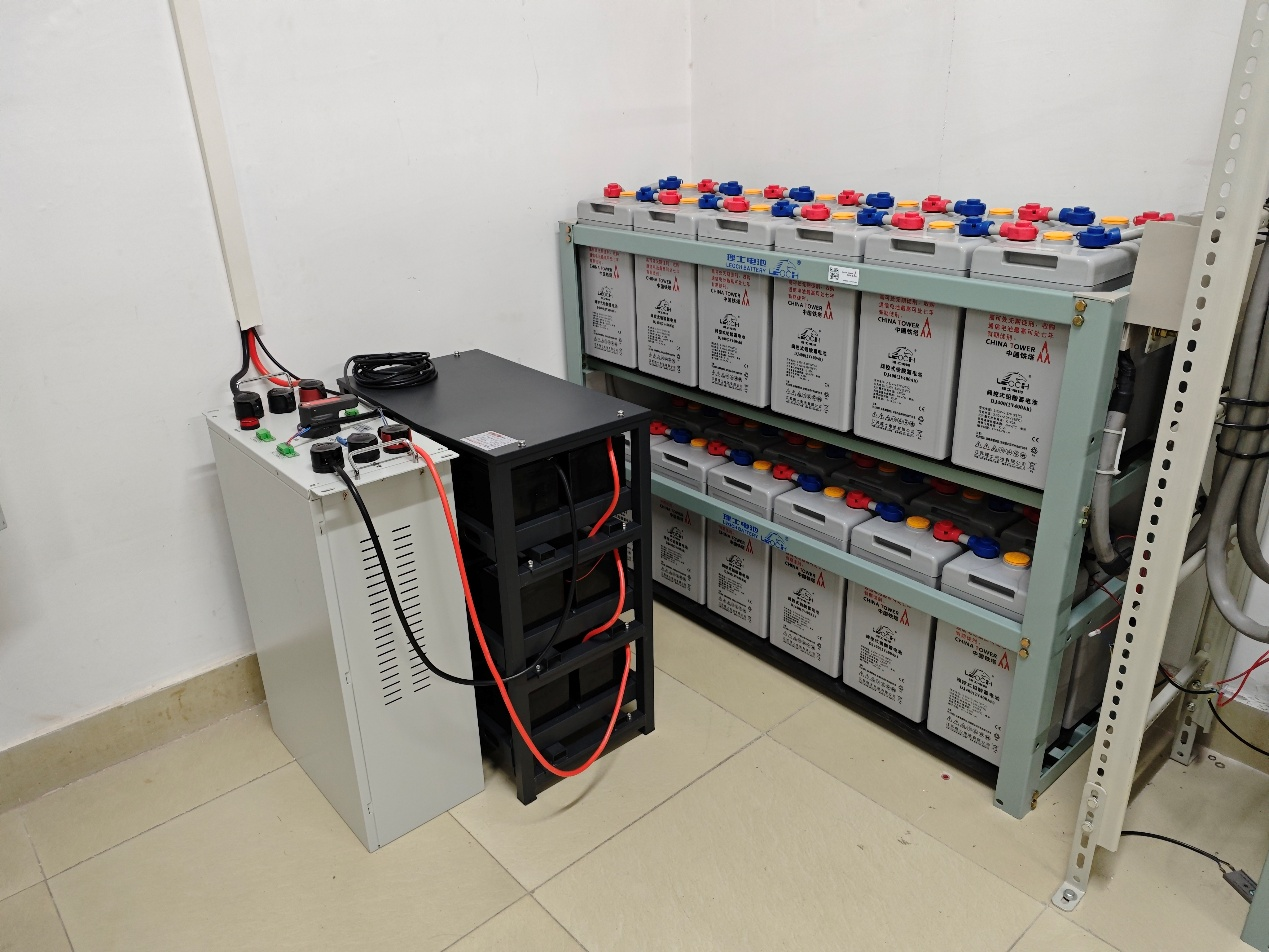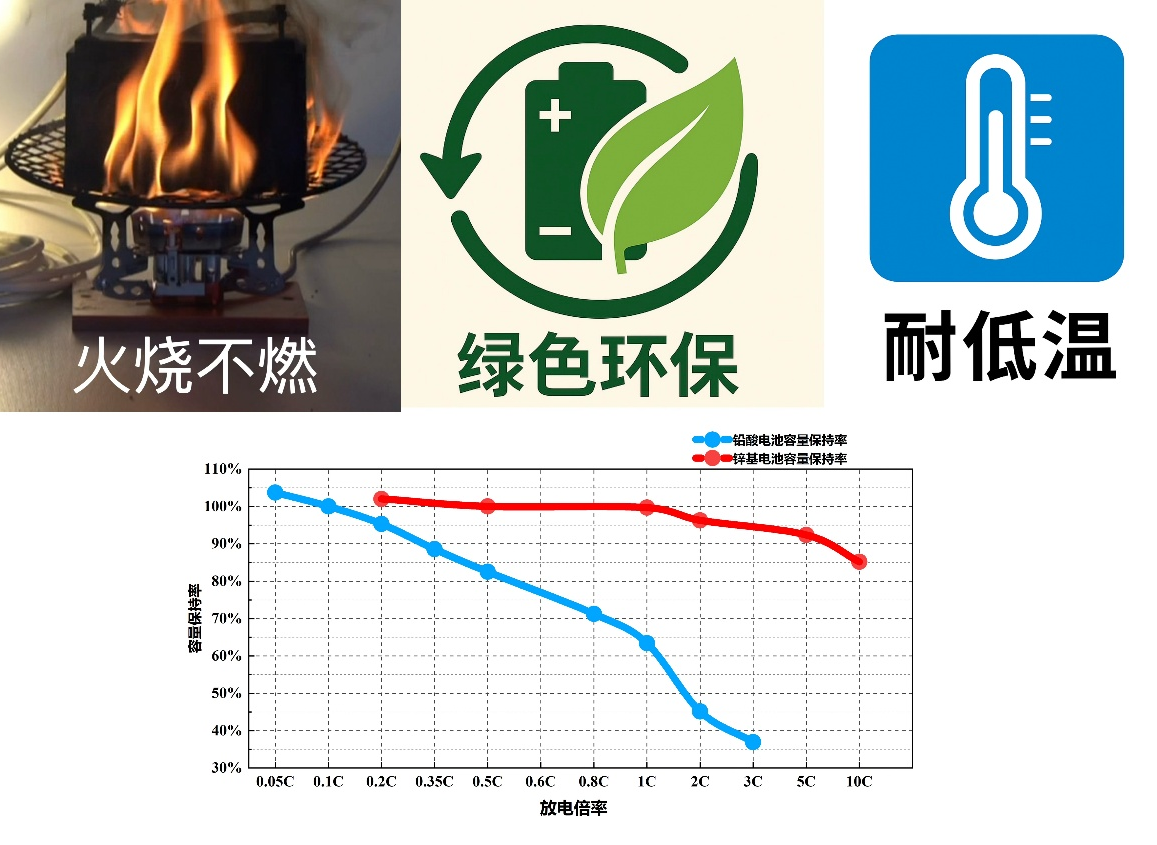Songshan Lake Materials Laboratory leads the research on the 2024 China Tower Aqueous Zinc-based Battery and Energy Big Data Project
Recent reports reveal that Songshan Lake Materials Laboratory has been awarded the 2024 Telecommunications Battery and Energy Big Data Research Project by China Tower Corporation. The laboratory will lead the research on aqueous Zinc-based batteries and fully undertake the research, development, and delivery of system products.
This research project is dedicated to developing and validating the application of aqueous Zinc-based batteries in telecommunications base stations, with the goal of enhancing the safety and sustainability of communication energy systems. The project focuses on exploring the operational advantages of Zinc-based batteries in extreme and low-temperature conditions to ensure the continuous stability of communication services, thereby significantly improving
the performance and reliability of base station energy solutions.

China Tower, a leading provider of telecommunication infrastructure services in China, is responsible for the construction and operation of the nation's communication base stations. In recent years, the company has focused on the safety, environmental sustainability, and green, intelligent transformation of backup power systems. This research project centers on enhancing the safety and environmental friendliness of power systems in communication base stations by exploring high-performance, innovative battery solutions.
Songshan Lake Materials Laboratory, one of the first provincial laboratories in Guangdong, actively explores a comprehensive innovation model that spans from basic research to commercialization, continuously advancing green energy technologies. Leveraging years of technical expertise, the laboratory's aqueous Zinc-based battery team has developed products that are distinguished by excellent safety, high energy density, long lifespan, and environmental sustainability.

Zinc-based batteries utilize non-flammable aqueous electrolytes and highly stable metal oxide electrodes, ensuring they remain stable even under extreme conditions such as direct flame exposure, high temperatures, or external short circuits, thus preventing thermal runaway and ensuring reliability and safety. In terms of performance, these batteries demonstrate superior high-rate discharge capabilities, supporting discharges up to 10C, which addresses the challenge of oversizing that is typical with traditional lead-acid batteries in short-term backup applications. The system's volume and weight are only half that of lead-acid batteries. Their performance at low temperatures is also remarkable, maintaining functional integrity at -20°C, which showcases their excellent adaptability to various environmental conditions. Furthermore, Zinc-based batteries are environmentally friendly throughout their lifecycle. They do not contain harmful heavy metals such as lead, cadmium, or mercury, and their production process is pollution-free. They are easily recyclable, which enhances their sustainability and aligns with the telecommunications industry's shift towards low-carbon solutions. Additionally, the longevity and low maintenance costs of Zinc-based batteries reduce overall expenses, providing a solid foundation for building green, safe, and intelligent telecommunications infrastructure.
To optimally match the technical specifications of the commonly used 48V 100Ah battery packs in communication base stations, our team has specially developed a 5V 60Ah aqueous Zinc-based battery cell with a three-series internal structure. This product has been strategically optimized in terms of structure and materials, balancing high energy output with a compact design. It is smaller in size and lighter in weight, significantly reducing the installation burden and structural stress on base station equipment, thereby enhancing overall system efficiency.
Looking ahead, communication base stations will evolve towards greater sustainability, safety, and intelligence. With the widespread deployment of emerging technologies like 5G and the Internet of Things, base stations demand higher standards of safety, environmental friendliness, and intelligence in power systems. Green energy will become a vital support for communication networks, and intrinsically safe, eco-friendly aqueous Zinc-based batteries will play a crucial role. The collaboration between Songshan Lake Materials Laboratory and China Tower has effectively accelerated the transition from theoretical research to practical technology application. Moving forward, the laboratory will continue to expand its research scope and strengthen industry collaborations, pushing the real-world application of innovative technologies. Through scientific innovation, it aims to foster sustainable development in the energy sector and generate broader social and economic benefits.
